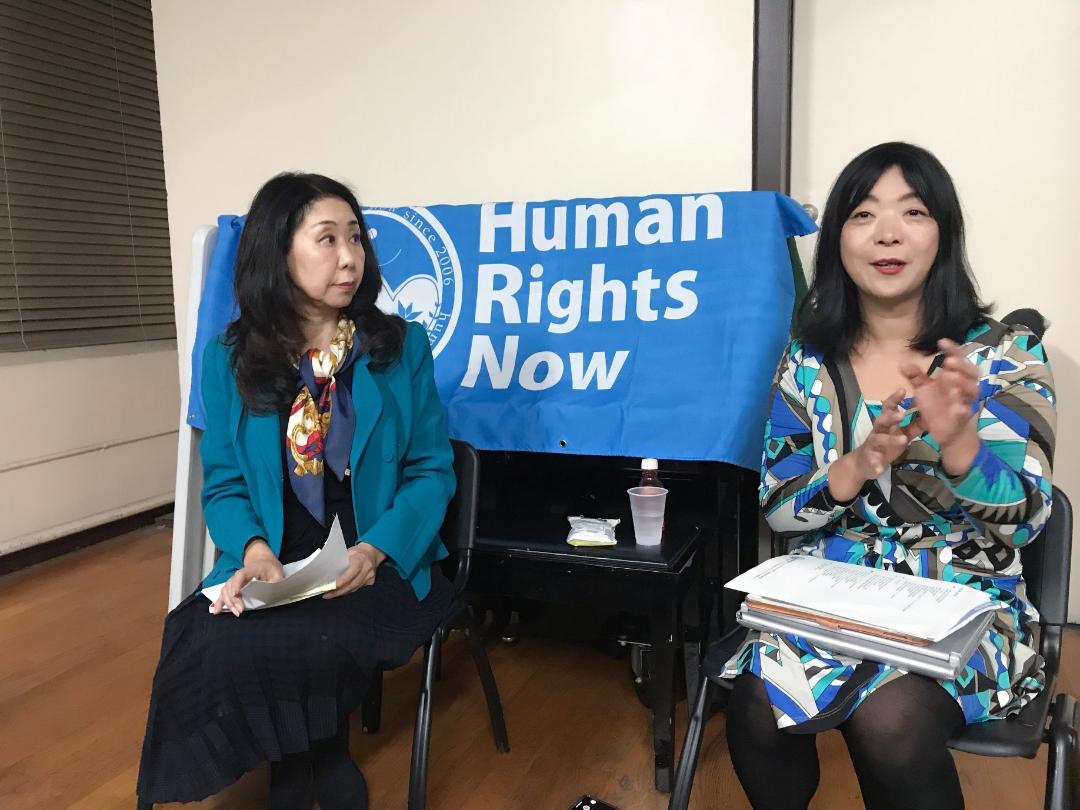On October 27, 2018, Human Rights Now (“HRN”) held a seminar at the Fashion Institute of Technology featuring Ms. Kazuko Ito and moderated by Ms. Yoshiko Sugimoto, New York chief correspondent for Senken Shimbun, a daily fashion trade newspaper.
In the seminar, conducted in an interactive format with Ms. Sugimoto, Ms. Ito spoke about the unsafe working conditions imposed on garment workers who manufacture clothes for global fast fashion brands in developing countries. Among others, Ms. Ito pointed to two recent incidents: In November 2012, a factory fire in Tazreen fashion factory located in Dhaka, Bangladesh killed more than 100 night-workers who were locked inside the building to prevent them from leaving work. In April 2013, a factory in Rana Plaza, located in the suburbs of Dhaka, collapsed and buried more than 1,110 labors alive. The day before the collapse, the workers had noticed a severe crack in the building bur were denied their requests to be dismissed from work.
In 2014, HRN collaborated with a local partner in China to conduct an undercover inspection of a Uniqlo sewing workshop. The investigation identified unlawful labor hours and hazardous working environment. Ms. Ito also described in detail how the inspection was conducted and its results as well as Uniqlo’s response to the report’s recommendation.

Ms. Ito also described the legislative and strategy context for reform. Labor standards in developing countries are frequently scarce or non-existent. Hence, the first step is to introduce and implement national laws. However, because the apparel manufacturing is a key industry in many such countries, the situation is often left as-is in the hopes of attracting corporate investment. Developed countries, on the other hand, also face pressure to suppress labor costs in order to compete with countries with cheaper labor forces.
Ms. Ito further noted that even developed countries may lack robust labor protection. For example, in contrast with the United Kingdom’s 2015 Modern Slavery Act, the United States’ regulatory framework for worker protections lags behind European and other developed countries. As another example, in Japan, in a survey conducted by HRN of 60 fashion companies, many companies responded that there is no human rights policy in place at their company. Ms. Ito also shared a range of labor violations documented in Japan: discriminatory underpayment of foreign trainees below legally required minimum wages; confiscation of foreign workers’ passports; locking workers into a small room to work; and exposure to radioactive toxins when cleaning up the Fukushima nuclear plant disasters. There were also cases in which the employer, when confronted, had foreign trainees deported. The majority of the seminar participants were involved in the fashion industry. Participants engaged in an active Q & A discussion, including questions regarding the effective regulation of child labor, sex trafficking, safety-protection for workers, guaranteed wages, and education opportunities for workers.



